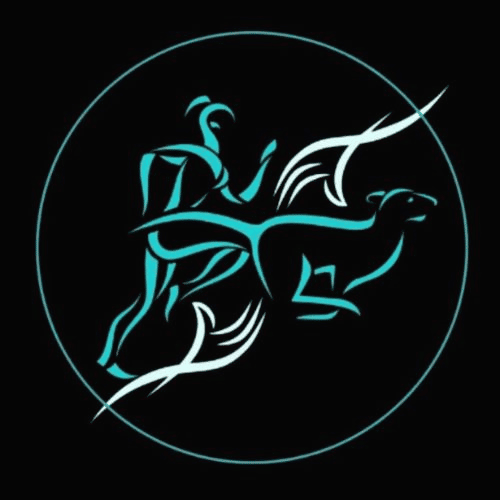LIFE NEEDN’T BE RESTRICTED BECAUSE OF YOUR FROZEN SHOULDER
LET’S GET YOU MOVING AGAIN SO YOU CAN ENJOY YOUR FREEDOM
FROZEN SHOULDER

Frozen shoulder is a common presentation in my Bowen Therapy clinic & clients visit me with this issue at various stages of its development –they may be in agony or they may be experiencing little pain but extreme restriction in function of the affected shoulder, making daily activities such as pouring a cup of tea, putting on a jacket or fastening a seat belt extremely difficult. If left unresolved for too long a frozen shoulder can trigger pain & restriction in other areas of the body due to compensatory patterns set up as the individual develops physical coping mechanisms to be able to perform simple activities such as those mentioned above.
What is frozen shoulder?
Frozen shoulder(Adhesive Capsulitis) happens when the tissue around your shoulder joint becomes inflamed, tightens & shrinks causing pain.
Frozen shoulder is characterized by 3 different stages which tend to develop gradually:
- The freezing stage -any movement of the shoulder causes pain, & range of movement becomes restricted
- The frozen stage-pain levels may reduce but the shoulder becomes stiffer (due to reduced movement during the freezing stage) & daily activities which rely on shoulder movement become more difficult, such as reaching up to grab something off the shelf
- The thawing stage- range of movement begins to improve & it appears the shoulder is getting better on its own
It’s great that a frozen shoulder can resolve itself without intervention but sadly this process can take anywhere between 1 & 3 years, much as the development can take many months to progress though each stage.
During the process of its development & reduction clients experience severe restriction in the ability to continue with daily activities & for some the pain worsens at night, sometimes disrupting sleep.
What causes frozen shoulder?
Frozen shoulder can develop at any time in a person’s life but according to statistics those over 40, women in particular, are more at risk.
There could be several factors influencing its development but one of the biggest factors is lack of movement of the arms/shoulder capsule – for example people who work for long periods at a computer, artists/craft makers or long distance drivers are particularly susceptible.
Long hours with arms held directly in-front of the body requires the body to lay down extra tissue to hold the arms in this position, creating stiffness & a restriction of the wide range of movement the shoulder is capable of.
As well as stiffness & restricted movement this postural habit can lead to a slowing down of the lymphatic flow through the axila (armpits), restriction of nerve function in the brachial plexus (a network of nerves located near the shoulder joint) & restriction of blood flow through the area & to the shoulder joint. Individuals recovering from a medical condition or procedure that prevents them from moving their arm — such as a stroke or a mastectomy- are also at risk.
As with all physical pain & restrictions the presenting symptoms can be a manifestation of disfunction elsewhere in the body due to compensatory patterns of movement or posture. Instability in the hip/pelvis, for example, will restrict movement in the opposite shoulder as the brain tries its best to prevent the body from toppling over at all times.
More rarely frozen shoulder can be a sign of diabetes – it’s still unclear why this is.
How can I relieve my frozen shoulder?
If you develop frozen shoulder symptoms & you are at risk of developing diabetes then get checked by a medical professional for assessment.
As frozen shoulder develops gradually it’s important to do something about it as soon as you notice signs of stiffness or pain to prevent it developing further.
The Bowen Technique is a non-invasive technique that can help resolve the issue, whichever stage you are at, but the earlier you book a series of sessions the quicker the issue will be resolved. The Bowen Technique will address the restriction & pain felt at the shoulder plus the therapist will usually look at other areas of the body which may be contributing to your presenting symptoms. You will be prescribed exercises to help increase range of movement in the joint capsule.
In severe cases frozen shoulder can be treated under medical supervision with corticosteroids and numbing medications injected into the joint capsule. In a small percentage of cases, arthroscopic surgery may be indicated to loosen the joint capsule so that it can move more freely.
During treatment & recovery from frozen shoulder you will be advised not to use any strenuous exercise or gym equipment that will exacerbate the pain or potentially cause injury in other areas of the body that have stepped in to help the function of the shoulder. Gentle is best & less is more.
Prevention is key & to avoid developing frozen shoulder it is advisable to drink plenty of water each day (to hydrate the tissues) & regularly move the arms in all directions, covering full range of movement of the shoulder capsule.
The Bowen Technique is a great way of maintaining optimal conditions of your musculoskeletal health.
“Having suffered with a rotator cuff injury for a few months, without any sign of improvement, I got in contact with Elly, I had three sessions of Bowen Therapy to help manage the pain. I’m now able to exercise my shoulder and am well on the road to recovery. Would not hesitate to recommend Elly”
P. Freeman
© All Well Beings 2022
Follow Us :
